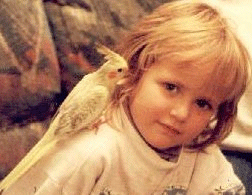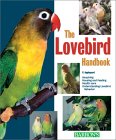Children and Birds

One of the most common questions parents ask is, “When is my child old enough to take on the responsibility of having a bird as a pet?” There are a number of things you should consider before purchasing a bird when you have young children in the home.
The Age of Your Child
While it is not a hard-and-fast rule, most people agree that a child should be at least 6 or 7 years old before you bring a pet bird into the home. Children younger than this tend to be more impulsive, and they can injure a bird in an accident, such as falling, stepping on the bird, or handling it too roughly without understanding how delicate it is. Young children move quickly, which can make many parrots nervous. Age is a subjective consideration. Some 5-year-olds are extremely calm and responsible; some 8-year-olds are careless and irresponsible. It is up to the parents to honestly consider the capacity of their child to handle a delicate pet such as a bird. They are not as “durable” as cats and dogs, being quite vulnerable to injury. Also take into consideration how traumatic it would be for your child if he or she is not mature enough and ends up injuring or killing the bird in an accident, not to mention how sad this will be for the poor bird.
The Size of the Bird
The smaller the bird, the more vulnerable it is to being stepped on or sat on. The bigger the bird, the more likely your child may end up getting a bite should he or she frighten the bird. Certain species are known for being good around children. Budgies and cockatiels are certainly the most popular birds in households with children. Interestingly enough is the fact that many people say amazon parrots, as large and unpredictable as they can be at times, are extremely good with children. I personally shudder when I see a young child kiss such a big beak, but my amazon has never done anything to injure a child and seems to know she needs to be gentle. However, amazons and many other parrots can go through hormonal stages and I would not recommend allowing children to keep these parrots on their shoulders or near their faces. Most of the larger parrots are best trained to sit on the hand rather than the shoulder, even when it comes to adults.
Vocalization
Birds in homes with children are frankly more likely to vocalize than birds in those without children. Why? Because birds are flock creatures and they like to join in with the flock. Children can get very vocal while playing and birds will begin to join in as part of the flock. Take this into consideration when choosing a species, because some can be extremely loud when they get going, such as many conures and cockatoos.
Who Is Ultimately Responsible
The parents are ultimately responsible for the care and well being of a pet bird. Even if your child begs you for this type of pet and promises to clean the cage, change the water every day, and give it fresh vegetables and other foods each day, chances are you as the parents will end up being the primary caretakers of the bird. You can’t teach your child a lesson about responsibility by refusing to change the water a few days because your bird will get sick and you will either incur expensive vet bills or lose your pet to illness. If you buy a bird for young children, fully expecting them to follow through with their promises, you may end up resenting the pet.
The Problem with “Test Runs”
You can’t really have a test run of a bird as a pet. This isn’t fair to the bird, and because they live so long, you are talking about a very serious commitment. It is a major mistake, unfair to both your family and to the bird, to say, “Okay, we’ll try having a bird and if it doesn’t work out we’ll just sell it.” A good thing to do before committing to a bird as a pet is to make a list of pros and cons. If the cons, such as cleaning time, training, and a complicated diet seem overwhelming, trust your instincts and either pick an easier pet to care for or forego the idea until you are sure you are ready for the challenges of pet bird ownership.









